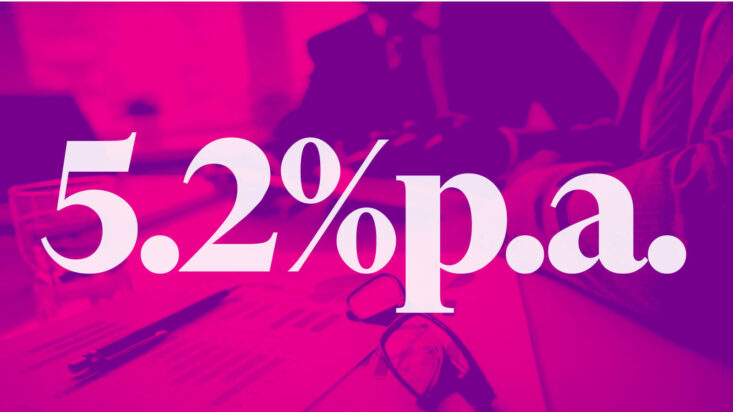The real value of financial advice is 5.2% p.a.
Delivering value in spades
It has been a difficult few years for financial advisers following the Royal Commission. The Commission uncovered some long-standing issues that were predominantly associated with the vertical integration of advice and investment management, resulting in a much needed professionalisation and cleanout of the industry. This has continued into 2020 with thousands of advisers exiting with the unfortunate side effect being the increasing cost and difficultly in accessing advice for most Australians.
Yet as a recent report from Russell Investments identified the value of having a financial adviser has never been greater. As advisers it can be difficult to quantify the exact financial benefit, we can have on our clients partly because we tend to be so heavily involved in their daily lives. Director and Head of Business Solutions Bronwyn Yates noted that whilst “some clients can experience sticker shock when they see advice fees for the first time. Our report shows that an adviser charging an advice fee of $3,250 to a client with a $250,000 balance can potentially deliver $13,250 of value – that’s $10,000 extra value to the client.
For many years investment managers have relied on financial advisers to ultimately distribute their products to clients and in the case of independently owned advisery firms, this has been done without a fee, reward, or subsidy per regulatory requirements. Despite being their most important distribution network, managers have provided little in the way of support to financial advisers, but this is beginning to change. Russell Investments put themselves out as ‘adviser centric’ and their annual ‘Value of an Adviser Report’ is becoming an important read for both advisers and prospective clients.
The Russell report outlines five key elements that make up the value of advice including, which they summarise as A + B + C + E + T. A they suggest is Appropriate Asset allocation, through which advisers can help clients work through their values, preferences, and motivations from the outset and ensure their portfolios are balanced appropriately. B is for Behavioural mistakes, which became increasingly important in 2020 as many investors sought to rush for the exit. Advisers are helping clients avoid common behavioural tendencies on a daily basis that may help achieve better portfolio returns than those investors making decisions without professional guidance.
C is for the Cost of Cash, with the tendency of self-directed investors holding much higher levels of cash well known in SMSF circles. This comes at an unforeseen cost but is traditionally due to the lack of a detailed investment strategy or policy. E is for Expertise and understanding that advisers are not just investment managers, but strategic and financial experts. And finally, T is for Tax Effective Investing, where advisers play an important role in identifying the best entities structure for each investment and assist in delivering after-tax outcomes.
Head of Wholesale Partnerships, Neil Rogan said, “While dedicated advisers are confronting challenges as volatility whipsaws many investors’ savings, they also need to articulate that the value they deliver goes far beyond selecting and managing investments. By demonstrating to clients how the value they deliver exceeds the fees charged, advisers can improve client engagement and satisfaction at a time of extreme market uncertainty.”
And the numbers suggest by Russell Investments are incredibly powerful. Their analysis suggests that simple ensuring a client is investing into the appropriate ‘Risk Profile’, i.e. Balanced vs. Growth, can add as much as 0.9% per annum in returns over the long-term. On the cost of cash, they use average SMSF and unadvised client balances to ascertain the ‘lost returns’ due to the tendency to hold cash rather than holding government or corporate bonds, with a move from 30 to 10 per cent cash adding 0.6 per cent year. This is obviously important in an environment where every basis point counts.
They estimate that the combination of appropriate entity structuring, assessing the best entity in which to hold each investment, and maximising the use of superannuation can add a further 1.5 per cent per year. This benefit expands to include the tax effective execution and trading that has become available through the proliferation of individual managed and managed discretionary account structures.
Similar to advisers themselves, they struggle to quantify the true benefit of all the strategic advice and handholding, noting it is priceless. But by far the standout is the ability to avoid behavioural mistakes, which has become even more important as volatility increased in 2020. Russell estimate that simply ensuring clients do not chase past performance, and avoid the mistakes of selling down their portfolio at the bottom of the market as many did in 2020 can add 2.2% per annum alone.
In fact, the report estimates that for someone with an investment balance of $250,000, selling to cash on March 16 would have locked in losses of more than $50,000 versus a member with the same balance who stayed invested during the volatility, recovering almost $20,000 already by the end of May. If you add up those benefits that’s 5.2 per cent in additional returns.
On the role of financial advisers, Yates is incredibly clear stating “our report shows advisers can play a critical role in helping investors avoid common behavioural tendencies and may potentially help their clients achieve better portfolio returns than those investors making decisions without professional guidance”.
Rogan solidifies Russell Investments’ support of the industry, echoing Yates in closing saying “we want advisers to know we stand with them during this unprecedented time and we believe advisers have never been more valuable.”











